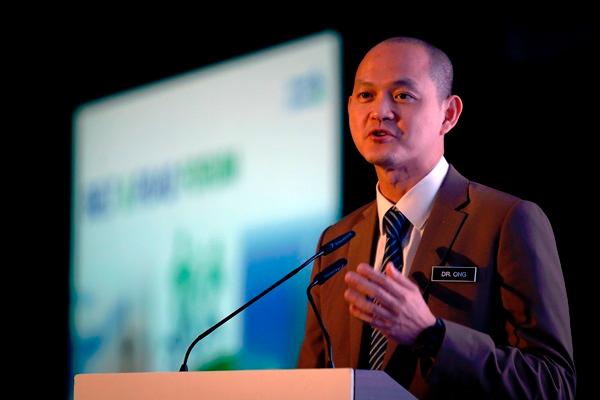KUALA LUMPUR: Malaysia’s decision on whether or not to ratify the Comprehensive and Progressive Agreement for Trans-Pacific Partnership (CPTPP) must take into account how foreign investors will view the country’s position within Asean, says the Ministry of International Trade and Industry.
Deputy Minister Dr Ong Kian Ming (pix) said this is especially so considering the region’s top three trading powerhouses – Singapore, Vietnam and Thailand – have either ratified the agreement or expressed strong interest to join the CPTPP.
“Let’s say these three most open economies in Asean either ratify or are very interested to join CPTPP, while Malaysia is in a position where we are deliberating on the process.
“We need to take into account how foreign investors will view our position in the region in the long term,“ he told reporters after speaking at an exclusive dialogue on ‘Asean Integration Outlook 2019’ today.
Furthermore, he said there is also a growing discussion on the possibility of China joining the pact.
“Although I do not anticipate China to be part of the CPTPP in the next one or two years, we cannot discount that possibility especially considering the US-China trade tensions,“ he said.
He said the government is cautiously optimistic that talks on another mega trade pact – the Regional Comprehensive Economic Partnership (RCEP) – would reach a substantive conclusion this year.
He said one area of discussion that is yet to reach a conclusion among participating countries is the level of trade liberalisation.
“We are also waiting for the outcome of the general election in India to see what kind of position the new administration will take.
“However, I think that the push for greater trade is something that a country like India will have to consider very seriously regardless of which side will take power after the election,“ he said.
Commenting on the third national car, he said the project is being handled by Malaysian Industry-Government Group for High Technology (MIGHT), an agency under the Prime Minister’s Department.
The International Trade and Industry Ministry’s role would be to coordinate with MIGHT in terms of the National Automotive Policy (NAP) to see how the third national car fits into the larger automotive sector.
“The third national car will not be a flying car. I have not seen the prototype and I am not privy to know the details of the car, but it is unlikely that the flying car will be produced on a commercial basis.
“Whatever is developed will be a prototype, utilising some existing seed money and then if there are interested parties in the private sector to take on this project to expand it, it will be the prerogative of the private sector,“ he said.
Asked about Malaysia’s foreign direct investment performance for 2018, he said: “I am quite confident that it will be better than 2017 but the detailed figures will be announced by the minister on Thursday.”
The half-day event today was organised by CIMB Asean Research Institute.













